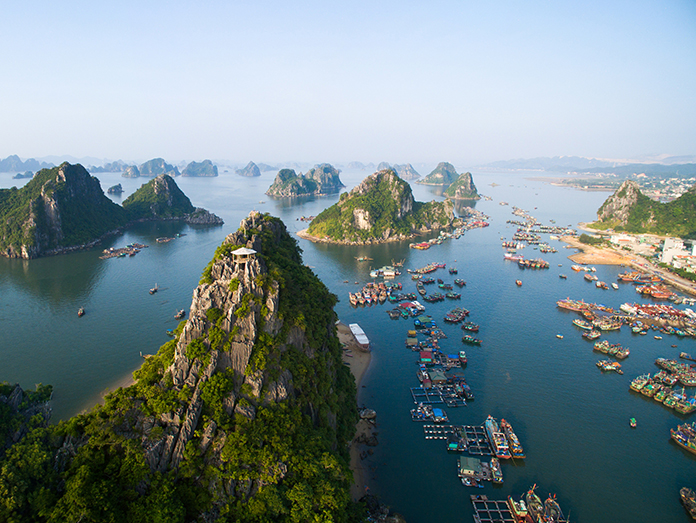As of August 1st, EU exports to Vietnam have been taxed less as of tomorrow. This was the immediate effect of the entry into force of the EU-Vietnam trade agreement that will ultimately scrap duties on 99% of all goods traded between the two sides. Doing business in Vietnam will also become easier for European companies: they will now be able to invest and pitch for government contracts with equal chances to their local competitors. Under the new agreement, the economic benefits go hand in hand with guarantees of respect for labour rights, environment protection and the Paris Agreement on climate, through strong, legally binding and enforceable provisions on sustainable development.
A comprehensive trade accord
The EU-Vietnam agreement is the most comprehensive trade agreement the EU has concluded with a developing country. It takes fully into account Vietnam’s development needs by giving Vietnam a longer, 10-year period to eliminate its duties on EU imports. However, many important EU export products, such as pharmaceuticals, chemicals or machinery will already enjoy duty free import conditions as of entry into force. Agri-food products like beef or olive oil will face no tariffs in three years, while dairy, fruit and vegetables in maximum five years. Comprehensive provisions on sanitary and phytosanitary cooperation will allow for improving market access for EU firms via more transparent and quick procedures. It also contains specific provisions to address regulatory barriers for EU car exports and grants protection from imitation for 169 traditional European food and drink products (like Roquefort cheese, Porto and Jerez wines, Irish Cream spirit or Prosciutto di Parma ham) recognised as Geographical Indications.
At the same time, the trade agreement expresses a strong commitment of both sides to environment and social rights. It sets high standards of labour, environmental and consumer protection and ensures that there is no “race to the bottom” to promote trade or attract investment.
The President of the European Commission, Ursula von der Leyen, stated: “The European economy needs now every opportunity to restore its strength after the crisis triggered by the coronavirus. Trade agreements, such as the one becoming effective with Vietnam today, offer our companies a chance to access new emerging markets and create jobs for Europeans. I strongly believe this agreement will also become an opportunity for people of Vietnam to enjoy a more prosperous economy and witness a positive change and stronger rights as workers and citizens in their home country.”
What it means for Greek products
Under the EU-Vietnam trade agreement, protection is provided against imitations for 169 traditional European foods and beverages recognized as geographical indications (PDO and PGI), including Feta cheese, Kalamata olives, Kasseri cheese, Chios mastiha, ouzo, retsina, Sitia olive oil, Nemea wines, wines from the island of Samos, and Peloponnesian wines.
Greece and Vietnam already have a close trading relationship, the EU-Vietnam trade agreement, however, will give it an extra boost.
- Vietnam is Greece’s 25th biggest trade partner outside the EU.
- The value of Greek exports to Vietnam amounts to €40 m
- The value of Greek imports from Vietnam is €194 m
The background
Vietnam is the EU’s second largest trading partner in the Association of Southeast Asian Nations (ASEAN) after Singapore, with trade in goods worth €45.5 billion in 2019 and trade in services of some €4 billion (2018).
The EU’s main exports to Vietnam are high-tech products, including electrical machinery and equipment, aircrafts, vehicles, and pharmaceutical products. Vietnam’s main exports to the EU are electronic products, footwear, textiles and clothing, as well as coffee, rice, seafood, and furniture.
The agreement with Vietnam is the second trade agreement the EU has concluded with an ASEAN member state, following the recent agreement with Singapore. It represents an important milestone in the EU’s engagement with Asia, adding to the already existing agreements with Japan and Republic of Korea.



















